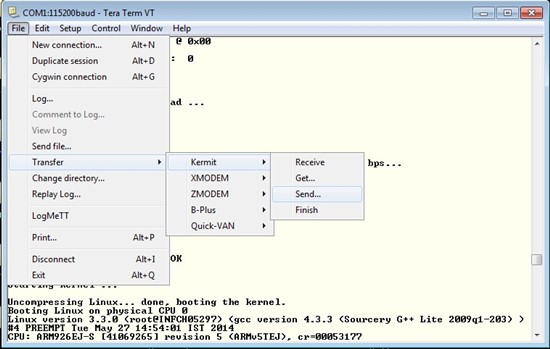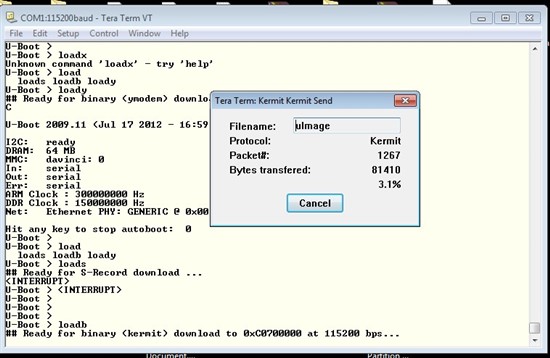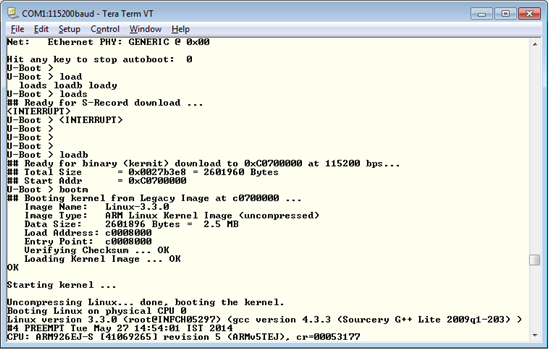Hi,
I downloaded kernel image into DDR2 at address 0xC0700000 with Ymodem exchange proposed by UBOOT (loady command).
But when I execute "bootm 0xC0700000", kernel is not launched.
----------------------------------------------------------------------------------------------
U-Boot > bootm 0xc0700000
## Booting kernel from Legacy Image at c0700000 ...
Image Name: Linux-3.3.0
Image Type: ARM Linux Kernel Image (uncompressed)
Data Size: 2397792 Bytes = 2.3 MiB
Load Address: c0008000
Entry Point: c0008000
Verifying Checksum ... Bad Data CRC
ERROR: can't get kernel image!
U-Boot >
----------------------------------------------------------------------------------------------
It's a problem of download? or kernel image?
Thanks
Best Regards
Sebastien




